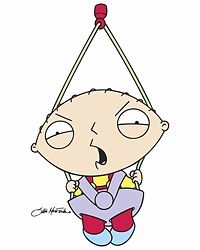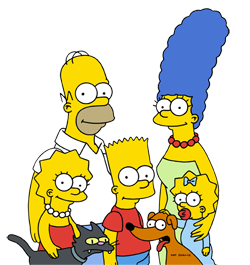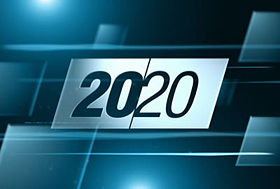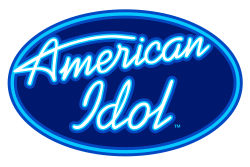BEIJING – As the shine wore off the original Dream Team, as Michael, Magic and Larry weren’t around to save it, the popularity of the professional players on the U.S. men’s basketball team faded fast.
 There are times when it feels half the country is rooting against it, even reveling in embarrassing performances such as the Larry Brown-coached bronze medal team in the 2004 Athens Games. It’s not clear Team USA could be an overwhelming fan favorite anywhere, even back in the States.
There are times when it feels half the country is rooting against it, even reveling in embarrassing performances such as the Larry Brown-coached bronze medal team in the 2004 Athens Games. It’s not clear Team USA could be an overwhelming fan favorite anywhere, even back in the States.
There are too many people who won’t embrace the players and who bristle at the concept of highly paid pros representing the country, or even, as absurdly unrealistic as it is, pine for a return to the “college guys” even if it would mean one humiliating defeat after another.
There are still plenty of fans back in America, of course. There just may not be as many as the team enjoys here in China, a basketball-mad nation in love with the NBA.
“Sometimes we feel we’re better supported here than back at home,” Chris Paul said. “That’s just China for us.”
It was all on display Sunday night in an historic 101-70 U.S. victory over China where a sellout crowd of nearly 18,000 crammed every nook and cranny of Beijing Olympic Basketball Gymnasium to, quite amazingly, cheer for both teams.
They may have waved Chinese flags, but they wore NBA jerseys while doing it. They may have roared for every Chinese three-pointer, but they weren’t above dancing in the aisle after a powerhouse LeBron James dunk.
Perhaps most telling was their honest debate over who received the biggest ovation of the night: national hero Yao Ming or Kobe Bryant of suburban Philly.
All of which begs a question: With China not much of a medal contender thanks to a hobbled Yao, could the United States of America wind up being the crowd favorite at an Olympics half a world away from home? In a communist country, no less?
“I think so,” Paul said. “We could have the fans behind us. China has always been so supportive of us.”
It would be a far cry from the Athens Games, where fans in Greece, while excited to see NBA players in person, reveled in the Americans’ three losses. Like the early rounds of the NCAA tournament, they boisterously rooted for whoever might upset the mighty red, white and blue.
It helped contribute to a miserable American experience, one exasperated by coach Larry Brown pathetically playing on stereotypes as he bashed his players. It was a transparent attempt to escape blame from fans back home. That it actually worked with many of them – forcing NBA commissioner David Stern to fly to Greece to blast Brown and defend the players – showed the depth this program had sunk.
That was a team that was beloved almost nowhere.
This one, at the very least, is loved here.
The Chinese fans came early and packed the place to the rafters. A ring of luxury boxes was overloaded. Around the walkway they stood three, four deep, craning necks for even a glimpse of the action. Further back, stadium workers crouched to catch a flicker on the JumboTron.
The crowd may have chanted “China” and implored for what would have been the mother of all upsets, but there was no lack of appreciation for the Americans’ high-wire act.
The fans were so relentlessly positive that even President Bush, on hand with his wife and father, was politely cheered. Only during a couple of American free throws was anything resembling a boo even heard, and that was more as a distraction, not a condemnation.
“In the States, when you go into someone else’s house, they don’t usually cheer for (you),” smiled Carlos Boozer, currently of the Utah Jazz and formerly a Duke Blue Devil.
So you never got cheered at the Dean Dome?
“No,” he laughed. “I don’t think that happened. … It just goes to show you how globally the game is getting better. It’s fun to see.”
This was everything Stern dreamed of when he embraced the idea of putting professional players in the Olympics. It helped make his stars international in nature and, despite the uneven results, the thought that an estimated one billion people worldwide were expected to watch on television – the most ever for a basketball game – can’t be discounted.
In terms of immediate competitive advantage, for Team USA, the question is whether it can become China’s team.
As the Americans advance into the medal rounds, will fans pull for the immensely popular Bryant and his other familiar teammates? Or will national pride – China is expected to be in a tight race for total medals with the U.S. – win out?
“It’s something we’ll have to see,” LeBron James said. “We’re not looking to have an advantage. But I think the fans here showed us a lot of respect.”
Halfway around the globe, the Americans may have finally found themselves at home.
There are too many people who won’t embrace the players and who bristle at the concept of highly paid pros representing the country, or even, as absurdly unrealistic as it is, pine for a return to the “college guys” even if it would mean one humiliating defeat after another.
There are still plenty of fans back in America, of course. There just may not be as many as the team enjoys here in China, a basketball-mad nation in love with the NBA.
“Sometimes we feel we’re better supported here than back at home,” Chris Paul said. “That’s just China for us.”
It was all on display Sunday night in an historic 101-70 U.S. victory over China where a sellout crowd of nearly 18,000 crammed every nook and cranny of Beijing Olympic Basketball Gymnasium to, quite amazingly, cheer for both teams.
They may have waved Chinese flags, but they wore NBA jerseys while doing it. They may have roared for every Chinese three-pointer, but they weren’t above dancing in the aisle after a powerhouse LeBron James dunk.
Perhaps most telling was their honest debate over who received the biggest ovation of the night: national hero Yao Ming or Kobe Bryant of suburban Philly.
All of which begs a question: With China not much of a medal contender thanks to a hobbled Yao, could the United States of America wind up being the crowd favorite at an Olympics half a world away from home? In a communist country, no less?
“I think so,” Paul said. “We could have the fans behind us. China has always been so supportive of us.”
It would be a far cry from the Athens Games, where fans in Greece, while excited to see NBA players in person, reveled in the Americans’ three losses. Like the early rounds of the NCAA tournament, they boisterously rooted for whoever might upset the mighty red, white and blue.
It helped contribute to a miserable American experience, one exasperated by coach Larry Brown pathetically playing on stereotypes as he bashed his players. It was a transparent attempt to escape blame from fans back home. That it actually worked with many of them – forcing NBA commissioner David Stern to fly to Greece to blast Brown and defend the players – showed the depth this program had sunk.
That was a team that was beloved almost nowhere.
This one, at the very least, is loved here.
The Chinese fans came early and packed the place to the rafters. A ring of luxury boxes was overloaded. Around the walkway they stood three, four deep, craning necks for even a glimpse of the action. Further back, stadium workers crouched to catch a flicker on the JumboTron.
The crowd may have chanted “China” and implored for what would have been the mother of all upsets, but there was no lack of appreciation for the Americans’ high-wire act.
The fans were so relentlessly positive that even President Bush, on hand with his wife and father, was politely cheered. Only during a couple of American free throws was anything resembling a boo even heard, and that was more as a distraction, not a condemnation.
“In the States, when you go into someone else’s house, they don’t usually cheer for (you),” smiled Carlos Boozer, currently of the Utah Jazz and formerly a Duke Blue Devil.
So you never got cheered at the Dean Dome?
“No,” he laughed. “I don’t think that happened. … It just goes to show you how globally the game is getting better. It’s fun to see.”
This was everything Stern dreamed of when he embraced the idea of putting professional players in the Olympics. It helped make his stars international in nature and, despite the uneven results, the thought that an estimated one billion people worldwide were expected to watch on television – the most ever for a basketball game – can’t be discounted.
In terms of immediate competitive advantage, for Team USA, the question is whether it can become China’s team.
As the Americans advance into the medal rounds, will fans pull for the immensely popular Bryant and his other familiar teammates? Or will national pride – China is expected to be in a tight race for total medals with the U.S. – win out?
“It’s something we’ll have to see,” LeBron James said. “We’re not looking to have an advantage. But I think the fans here showed us a lot of respect.”
Halfway around the globe, the Americans may have finally found themselves at home.






























No comments:
Post a Comment